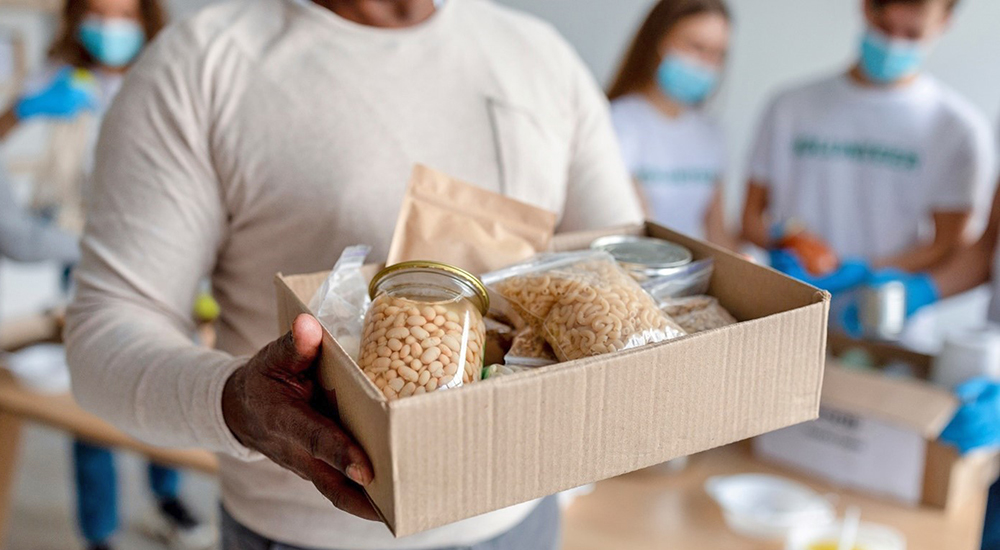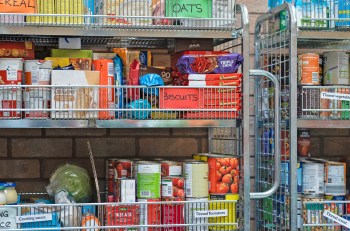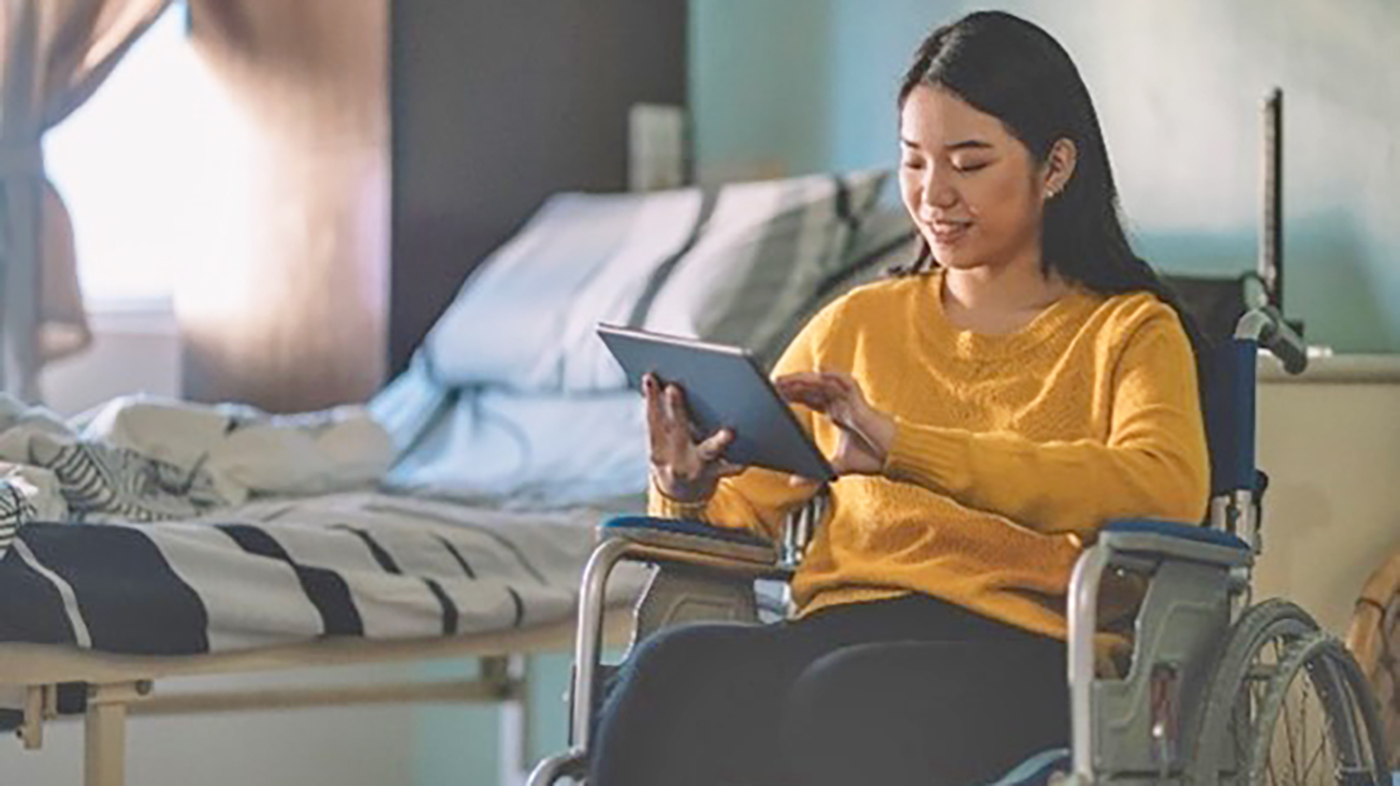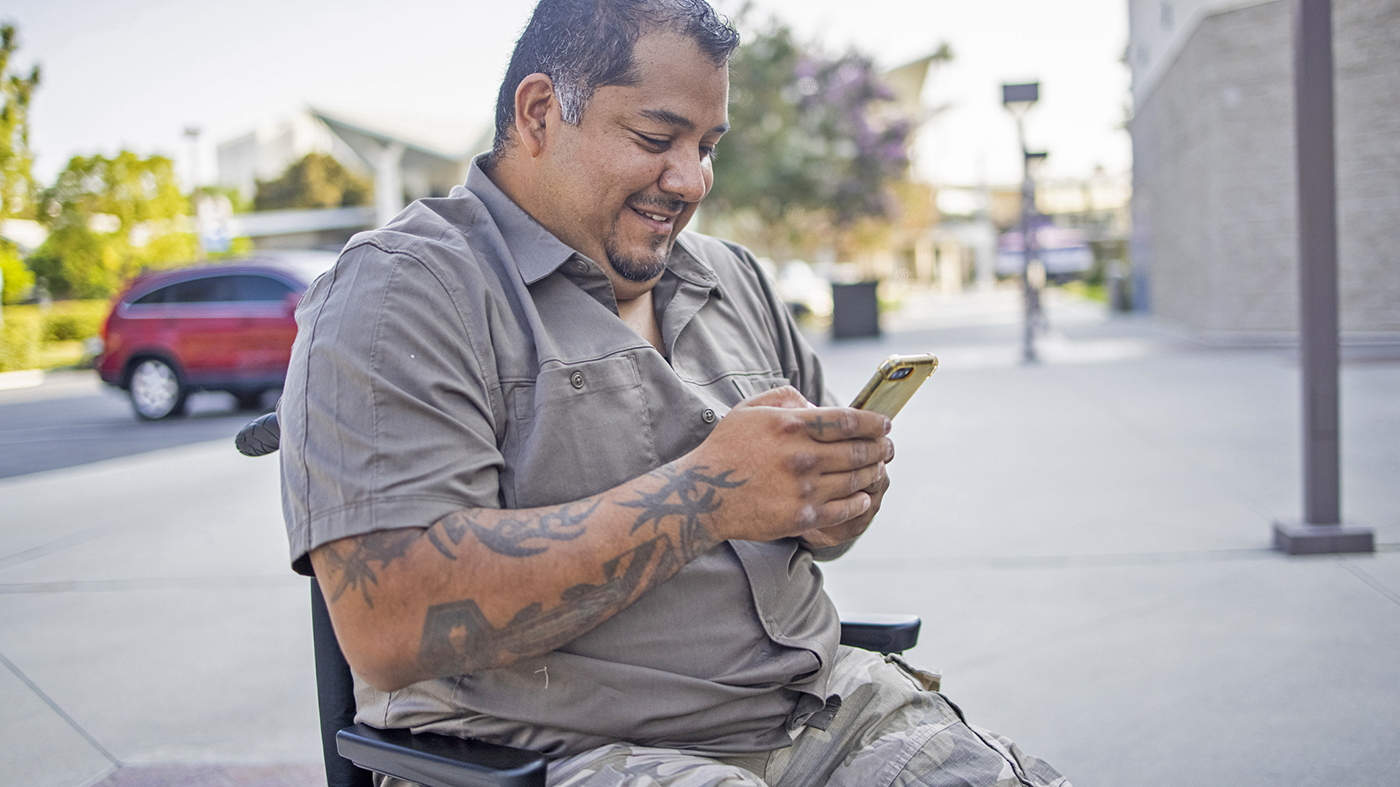A collegiate level electrical engineering exam would be intimidating for most, but for Army Veteran Rodney Bennett, no test his professors could give compare to those he has already been through. Especially when it comes to getting the basic nutrition he needs.
Bennett had always been an outstanding student. As he prepared to graduate from high school, his SAT and ACT scores were high, and his college prospects were plentiful. But he was ready to pursue an education beyond the walls of a classroom. When an Army recruiter approached him, he said, “Let’s go.”
“I wanted to do something that meant something. I wanted to serve my country. I felt like that was the greatest honor anyone could ever ask for,” he said.
VA re-entry specialist explained services
After five years of service, Bennett transitioned from the Army and returned to the “Sooner State.”
Reintegrating into civilian life was challenging and he struggled to find an affordable place to live. He was forced to rely on the hospitality of family and friends.
“Whichever way the wind blew, that’s where I went,” he said.
Bennett eventually went to VA in search of help. That’s where he met Alicia Teacher, VA’s re-entry specialist in Oklahoma.
Teacher shared information about VA programs that could help Bennett find permanent housing, as well as gain employment, enroll in college, and receive health care. He was relieved VA could help, but he was also worried it would take months to receive the services he needed.
Teacher proved his fears wrong, and Bennett’s state improved much sooner than he expected.
Team created food pantry
During one of his first visits to VA, Bennett’s medical provider recognized that he was food insecure and lacked reliable access to nutritionally adequate food.
According to research conducted by the United States Department of Agriculture, 11.1% of working-age Veterans lived in food-insecure households between 2015-2019. Veterans who served in Iraq and Afghanistan are nearly twice as likely to be food insecure compared to the general population.
Oklahoma VA recognized that an increasing number of Veterans needed immediate support to combat the physical and mental consequences of food insecurity.
In response, social worker Christine Cleary and members of the Food Insecurity Improvement Project Team led the creation of a walk-in food pantry and resource list that Veterans could access on weekdays. They began providing boxes of food to Veterans identified as food insecure during their medical visits.
“Someone who truly cares is a blessing.”
These strategies have proved vital for Oklahoma City Veterans like Bennett who no longer are forced to choose between affording groceries and other essential items. Food isn’t the only fuel Bennett receives from VA. The kindness of Teacher and the VA care team has sustained his hope.
“To find someone who truly cares is a blessing,” he said. “She truly cares and the people she works with truly care. It’s been such a wonderful turnaround. It’s just been amazing.”
Show gratitude by donating to local food pantries
Today, Bennett is focused on accomplishing his next mission: earning a degree in electrical engineering.
As he becomes an expert on positive and negative charges carried by electrons, he issues another charge to all Americans looking for ways to support Veterans: “Don’t tell me how thankful you are for my service. Show me how thankful you are for my service.”
During Hunger Action Month, we can all show gratitude to the Veterans in our lives by donating to our local food pantries, volunteering to serve meals, or letting them know that they do not have to solve life’s challenges alone.
Our Veterans fought for our freedom. Now it’s our turn to fight to end hunger among our nation’s heroes.
Learn about VA programs
- Veterans who are homeless or at risk for homelessness should contact the National Call Center for Homeless Veterans at 877-4AID-VET (877-424-3838).
- Visit the VA Homeless Programs website to learn about housing initiatives and other programs for Veterans exiting homelessness.
- Check out the Ending Veteran Homelessness podcast to learn more about what VA is doing about Veteran homelessness.
- For more stories like these, visit the HPO website and subscribe to the Homeless Programs Office newsletter to receive monthly updates about programs and supportive services for Veterans experiencing or at risk of homelessness.
- Explore VA Nutrition and Food Services.
- Learn more about food pantries at VA facilities.
Topics in this story
More Stories
In a decentralized clinical trial, Veterans can participate from their own homes or local VA instead of having to travel to a research site.
After serving in the Air Force for 25 years, Larry Wilson is now a My HealtheVet coordinator helping Veterans navigate their care.
Veterans across all 18 VISNs can use VA Health Chat to send messages to VA staff for questions about their health.







